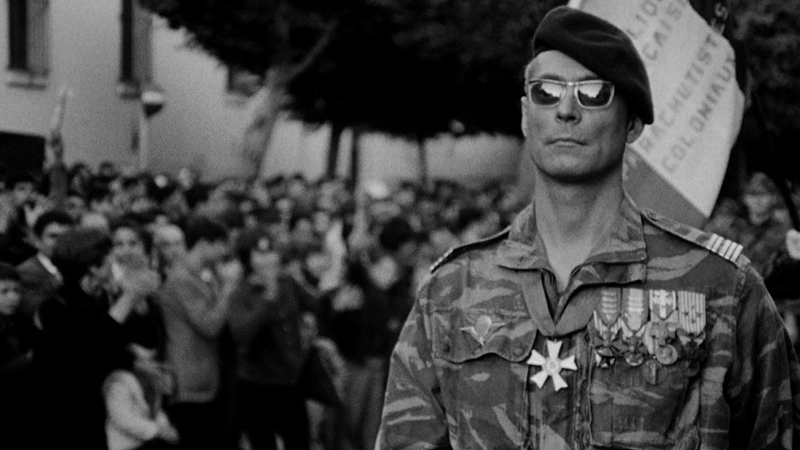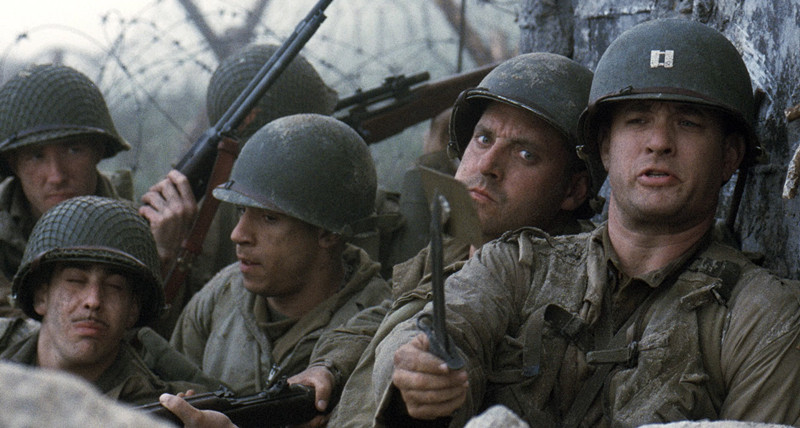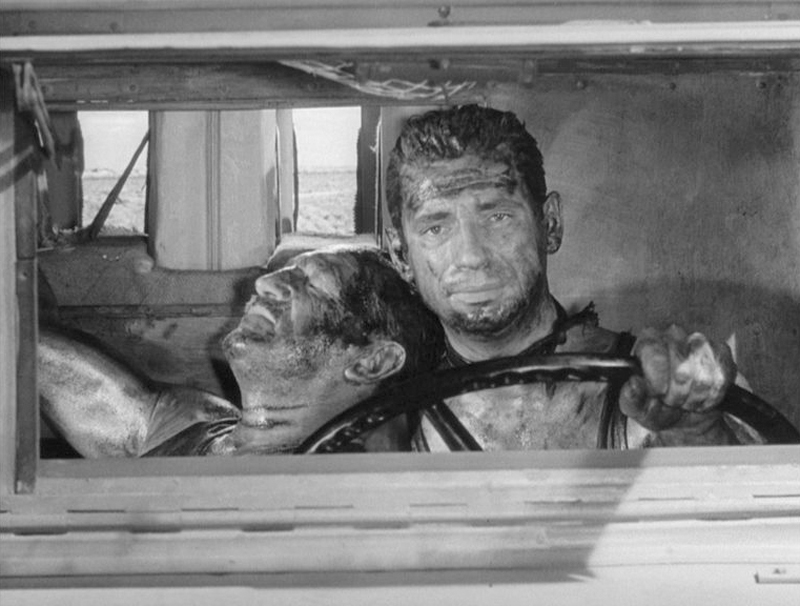
As the premiere of Christopher Nolan’s new movie “Dunkirk” has arrived, here is a selection of films that have some connections with this movie – some of them even quoted by the director as direct influences – and brilliant war films from the history of cinema that should definitely be watched before Nolan’s film.
In “Dunkirk”, a very visual movie that is one of the most anticipated releases of the year, we are introduced to Allied soldiers from the British Empire, Belgium and France that are surrounded by the Germans during a brutal battle in World War II. The movie stars Mark Rylance, Tom Hardy, Fionn Whitehead, Aneurin Barnard, Barry Keoghan and, of course, the film even has a cameo from Michael Caine.
So, in order to celebrate great films that expose the cruelty and senseless savagery of war (and even some classic thrillers and visual masterpieces), here are 10 movies that you should see before watching Dunkirk.
1. All Quiet on the Western Front (1930), directed by Lewis Milestone

The Oscar-winning film from acclaimed director Lewis Milestone, “All Quiet on the Western Front” is a defining movie in the history of the depiction of war in cinema. In the words of Christopher Nolan to the British Film Institute: “One look at James Jones’ on ‘Phony War Films’ (in which he takes down several of my old favourites) immediately shows you the perils of taking on real-life combat in a dramatic motion picture.
In Jones’ estimation All Quiet on the Western Front said it first and best: war dehumanises. Revisiting that masterpiece it is hard to disagree that the intensity and horror have never been bettered. For me, the film demonstrates the power of resisting the convention of finding meaning and logic in individual fate.”
In “All Quiet on the Western Front” we follow a group of German boys that are convinced by their teacher to enlist in the begin of World War I. The dreadful experience they face from that moment on makes all the thoughts about that conflict they had before they vanish in the middle of the horrors of the war.
Amazingly directed by Milestone, “All Quiet on the Western Front” is an essential film that makes clear the dehumanisation caused by war and the grievous consequences it causes for such young people that are forced or convinced to be a part of something so abominable.
2. The Battle of Algiers (1966), directed by Gillo Pontecorvo

“The Battle of Algiers” is an Italian-Algerian movie directed by Gillo Pontecorvo that follows the people of Algiers fighting the French government for independence during the 1950s. The film won the Golden Lion at the Venice Film Festival in the year it was released.
The most interesting aspect of “The Battle of Algiers” is that it shows both sides of the story: the struggle of an oppressed nation to find its independence, and the French soldiers from the foreign legion that, after being defeated in Vietnam, need to prove themselves.
According to Nolan, again talking to the British Film Institute, “The Battle of Algiers” is a “timeless and affecting verité narrative” that, “in the least theatrical manner imaginable”, forces the audience to have empathy with the characters of that story. Oftenly and deservedly quoted as one of the greatest war films ever made, “The Battle of Algiers” is definitely a movie that should be watched by anyone who loves film.
3. Saving Private Ryan (1998), directed by Steven Spielberg

Among the best films directed by Steven Spielberg, “Saving Private Ryan” follows a group of eight soldiers from the United States that need to retrieve a paratrooper whose three brothers were killed in action. Behind enemy lines they try to stay alive and to find and save Private James Ryan.
In “Saving Private Ryan” there is the Omaha Beach scene, considered to be one of the most realistic war scenes in cinema history. This 24-minute scene might be the greatest achievement in Spielberg’s directorial career for the way he is able to orchestrate a wide variety of shots to build this terrifying and brutal environment of the Normandy landings.
The plot twist when they find Ryan, who is defending an strategic location, shows the great work by Robert Rodat. The movie has strong performances from Tom Hanks as Captain Miller and Matt Damon as Private James Ryan, making it an essential war movie to be watched. At the 1999 Academy Awards, “Saving Private Ryan” won five Oscars, including Best Director, the second in Spielberg’s career (the first one was for “Schindler’s List”).
4. Full Metal Jacket (1987), directed by Stanley Kubrick

One of the last works in the career of director Stanley Kubrick, “Full Metal Jacket” follows the training of the recruits to fight in the Vietnam War by the hands of Gunnery Sergeant Hartman and, after that, their horrendous experience at war.
Overshadowed by the time of its release by the Oscar winning “Platoon”, directed by Oliver Stone and released in the previous year, “Full Metal Jacket” stood the test of time and ended up being the more famous movie of the two.
With the great performance from R. Lee Ermey as Gunnery Sergeant Hartman, providing one of the most famous scenes in cinema history, “Full Metal Jacket” is a film that explores the somber aspects of war with very graphic violent scenes.
Lastly, it would also be very wrong not to put a Kubrick film on this list, particularly due to the great influence the director has had in Nolan’s career.
5. The Wages of Fear (1953), directed by Henri-Georges Clouzot

An important part of Nolan’s career is the use of suspense – not only rigorously as the thriller genre itself, but in trying to control the reaction of the audience and as one more aspect to make the work more interesting.
This movie has something very unique in it’s history of awards: It won the Palme d’Or and the Golden Bear, respectively in the Cannes Film Festival and Berlin Film Festival, in the same year. You might say that awards are not that important, but let’s face it – this is a film that won the top prize in the two greatest film festivals in the world. This might mean something, right? Because it really does.
In “The Wages of Fear”, four men need to deliver a supply of nitroglycerin to an oil field in the South American jungle. During the story, a conflict between the two sets of drivers start to build up and they feel that death might be very near. The way tension is built in this film and how every shot, without relying exclusively on editing, is able to help the narrative to leave the audience on the edge of their seat is majestic.
An indisputable classic directed by Clouzot, “The Wages of Fear” is the definition of a thriller and is one of the best of the genre that should definitely be watched by every cinephile.